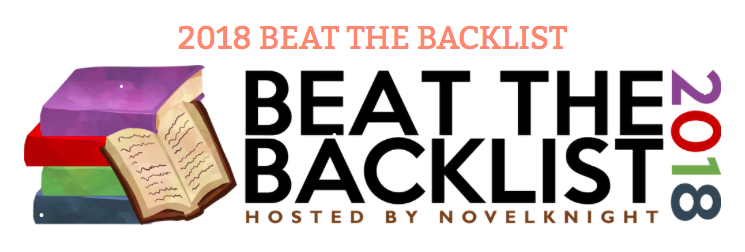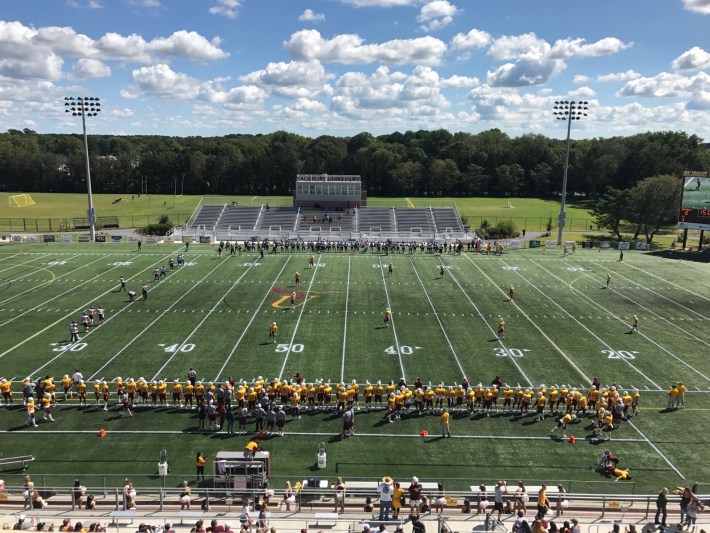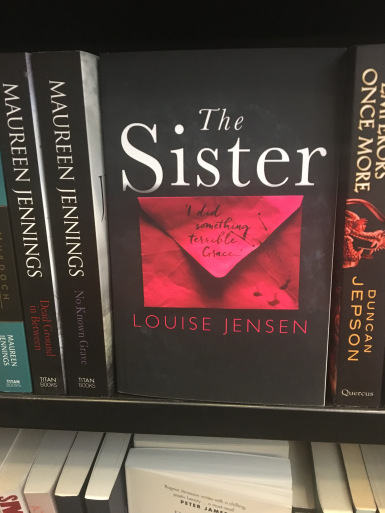(Usual disclaimers – does not reflect the position at my current school but a comment on librarianship as a whole etc. etc.)
I’ve been prompted to think about the library / librarian as part of an ecosystem (as opposed to the library ecosystem itself, * an important distinction) a lot recently as a result of the continued dismal reports on the state of libraries globally, but particularly in the USA / UK. On some of my librarian groups there are school librarians saying that their annual budget is US$100, to which hundreds of others reply theirs is zero. In the largely International School Librarian bubble that I operate that is luckily unthinkable except in a few rare for profit schools with little reputation to care about.
My Grade 1 students in their “Sharing the Planet” unit of inquiry investigate ecosystems, and I love learning along with them, as I continually update my knowledge and integrate aspects that were neglected in my own education. Last year I organised a great guest speaker, Jennifer Fox to come in to talk about “Saving the Rhino” and while she was talking about Rhino’s as “Umbrella Species” I was thinking about just how libraries and librarians are a little like crucial species at risk, and did a little research on the matter. The National Wildlife Federation identifies three types of species they work to protect: Keystone, Umbrella and Indicator. I’d argue libraries have characteristics of all of these species. Let’s look at the definitions:
Keystone: “Keystone species are species that enrich ecosystem function in a unique and significant manner through their activities, and the effect is disproportionate to their
numerical abundance. Their removal initiates changes in ecosystem structure and often loss of diversity.”
Umbrella species: “An umbrella species are typically large and require a lot of habitat. By protecting this larger area, other species are protected as well. Umbrella species generally have the following characteristics: their biology is well known, they are easily observed or sampled, they have large home ranges, they are migratory, and have a long lifespan.”
Indicator species: “A species that is particularly sensitive to environmental conditions and therefore can give early warning signals about ecosystem health. Because they are so sensitive, a decline in indicator species’ health can signal air and water pollution, soil contamination, climate change or habitat fragmentation. Indicator species are often threatened or endemic (native) species.” (quotes from National Wildlife Federation).
Libraries (when I say libraries I want you to read “libraries staffed by trained and competent specialised librarians”) are Keystone in the way they enrich the communities around them whether that be a local community, a school or university, or even a commercial entity with a library. In school environments often the number of librarians is vastly out of proportion (in the diminutive sense) to the community they serve, and yet all the teacher librarians I come in contact with are hugely influential in setting the tone for literacy and research in their schools. Exchanging information with each other to maximise their footprint and benefit to the community. Most of us strive to allow the voice of diversity to be heard and to have collections that reflect diversity. And if allowed are a counterbalance to other voices in the ecosystem as we generally have a longitudinal view of literacy and learning. Umbrella – well, yes, libraries are large with a big footprint. We take up space. And space is often at a premium. And as a result there is often significant pressure for us to be all things to all people. Something I’d argue that results in the myth of the “super librarian” and doesn’t always have the desired outcome. In the International sphere, as I’ve just been noticing with the annual “musical chairs” of teacher librarian job positions opening and closing, I’d say even the “migratory” part is true.
The saddest is the way in which libraries are Indicator species. And there I’d say countries like the UK are in dire straights with the state of libraries and librarianship being the canary in the coal  mine. This has the most awful knockoff effect that is unfortunately felt world-wide. Over the summer I toured a number of very prestigious and expensive private (called public there) schools in the UK with my daughter who was looking for 6th form boarding. None of them had the school library on tour, and when we asked to see them, if we were allowed more than a peek through a locked door they were dismal to say the least. Collections were outdated, the library was cramped with limited space and big desktop computers had prominence. But besides that the library had no “presence” at the school in the sense of posters advertising books, announcements, classroom libraries, anything to say that the library was an active and valued part of the community. This is not only a pity for that particular school. Unfortunately the pool of international educators and particularly heads of schools and divisions is often taken from graduates and teachers from these institutions. And of course the Peter Effect applies – they too cannot give what they do not have. Show me a teacher-librarian struggling in a school ecosystem and you can probably follow the trail to an “under-libraried” principal or school head. Research and advocacy on the importance of reading and libraries be damned, they don’t feel it / have it in them, so it’s an intellectual construct for them. The converse is also true, I’m incredibly fortunate to have both a principal and head of schools who believe in libraries – yes, believe as in a tenant of faith, because I think that is actually what is needed – belief not just lip-service to borrow religious analogies along with my eco-system ones.
mine. This has the most awful knockoff effect that is unfortunately felt world-wide. Over the summer I toured a number of very prestigious and expensive private (called public there) schools in the UK with my daughter who was looking for 6th form boarding. None of them had the school library on tour, and when we asked to see them, if we were allowed more than a peek through a locked door they were dismal to say the least. Collections were outdated, the library was cramped with limited space and big desktop computers had prominence. But besides that the library had no “presence” at the school in the sense of posters advertising books, announcements, classroom libraries, anything to say that the library was an active and valued part of the community. This is not only a pity for that particular school. Unfortunately the pool of international educators and particularly heads of schools and divisions is often taken from graduates and teachers from these institutions. And of course the Peter Effect applies – they too cannot give what they do not have. Show me a teacher-librarian struggling in a school ecosystem and you can probably follow the trail to an “under-libraried” principal or school head. Research and advocacy on the importance of reading and libraries be damned, they don’t feel it / have it in them, so it’s an intellectual construct for them. The converse is also true, I’m incredibly fortunate to have both a principal and head of schools who believe in libraries – yes, believe as in a tenant of faith, because I think that is actually what is needed – belief not just lip-service to borrow religious analogies along with my eco-system ones.
Digging around for some statistics I can see how circular reasoning is employed. Libraries are expensive, both in capital costs, in person-power and in keeping collections up to date, in the link above you can see a decline in spending and a decline in borrowing. Correlation is not causation, but the last “big spend” was around 2009 – are patrons interested in an outdated collection? I’m a member of the Singapore public library system. I actually physically visit the library once a year, to renew my membership card (and if I could do that online I would) but I borrow eBooks and audiobooks on a bi-weekly basis to get my “adult book fix” that’s not supplied by having K-6 books on tap in my school library. Beware of statistics.
Continuing on the ecosystem theme – who are the “big five” in education (if hunting refers to head-hunting)? To go back to a much read blog-post I wrote earlier on that dirty little word “power” again, looking at recruiting and search, I’m stunned that teacher librarians, a position requiring two masters degrees plus a teaching certification and “experience” are lumped in with teaching staff and are not part of the “leadership” positions. Librarians, like curriculum coordinators, heads of division and heads of schools have an overview of entire sections of schools. They give input into resourcing teaching and learning. Often have a dual role in learning technology as well as databases, digital and physical resources. Usually supervise library assistants and manage large budgets and a facility. Yet they are on teacher contracts and can and are regularly shoved back into the classroom when budget strings are tightened. There was much outrage on our International School Librarians’ group recently when a position in a prominent (UK) name brand school came up and the 13 page application form included such irrelevancies such as EVERY school attended since age 12 and EVERY job ever held as well as personal information such as whether your own children needed learning support (on the first page). Most people said they gave up after the first or second page as the information was largely irrelevant to the function, outdated or reeked of an exclusivity that didn’t align with their personal educational philosophies. Good luck finding a great librarian there, or maybe they’ll just staff it with the (unqualified) partner of a higher power or a nonfunctioning teacher (yes this happens more than you could imagine).
In saving libraries and qualified librarians we are not just saving buildings or people’s jobs, we’re saving the continued existence and perpetuation of literacy, learning, knowledge and wisdom. As crucial to a civilised society as the air we breath. Stop worrying about fake news, if we focus on good well run libraries the problem would take care of itself.
*Here is another great article using the eco-sytem metaphor – this time about feral and hybrid academic librarians!
Advertisements Share this:




